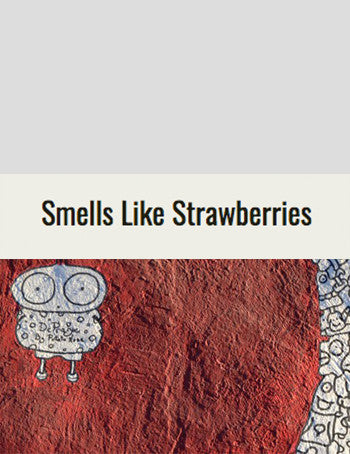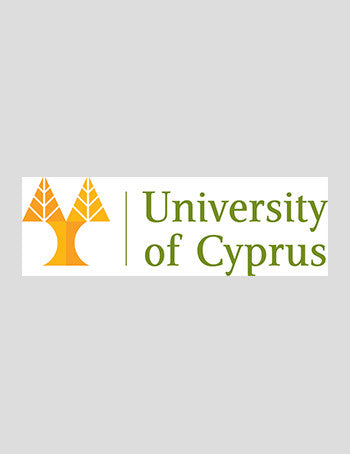
EILEEN FLEMING
Why is this Woman Smiling?
A Book Review of Reflections from Palestine: A Journey of Hope a memoir by Samia Nasir Khoury is also a most necessary history lesson.
My copy is the third Samia signed at the book launch in Jericho on her 80th birthday at the closing festivities for Sabeel's 9th International Conference and Celebration of 25 years of Christian Liberation Theology.
I began reading Samia's book that night as soon as I took an aisle seat aboard the red-eye from Tel Aviv to JFK Airport.
After the couple of ultra-Orthodox Jews settled in next to me, she turned to me and asked if I spoke Hebrew.
I replied with a smile, "I am your typical American; I only know English" as I flipped the front cover over and they both took a long look at it.
Samia writes:
"At the beginning of the occupation, nobody envisioned how long it would last. We were all sure that the international community would not allow the seizure of land by force, and that no occupation would be viable in the 20th century...
"There is no such thing as a benevolent occupation...
"It is a process of dehumanization and deprivation of freedom of all basic rights.
"As an occupied population we had no backing, neither from world opinion nor the United Nations, to see that international law was applied...
"Violations of human rights marked every town, every family and every organization.
"The resistance reached its climax with the Intifada, the [spontaneous] popular uprising against Israeli occupation that began in December 1987...
"The PLO had been established in 1964 after the Palestinians had given up on believing that the United Nations would redress the injustice that was inflicted on the Palestinians in 1948 or that it would implement the many United Nations resolutions pertaining to the rights of the Palestinians."
Samia then tells us the story of her cousin Kamal Nasir, and two other PLO leaders in Beirut who were assassinated in 1973, by an Israeli hit squad led by Ehud Barak.
Kamal fought the Israeli occupation with words and slayed them in poems which got him deported and that led to his becoming the spokesman for the Palestinian Liberation Organization in Lebanon.
Samia explains, "It was because of Kamal's writings and his speeches that he was targeted by the Israeli hit squad that took his life...
"There wasn't one family that did not have its share of suffering during those years of Intifada. In 1988, our son Suhail spent six months in jail for producing a tape of popular folk songs with alternative lyrics that glorified the intifada" [Arabic for rise up and cast off].
Samia recalls Israel's kidnapping of her son and "seeing how bruised his neck was, presumably from torture. When they brought him to the court room the next day, he pointed at the hand cuffs and shackles on his feet and said to me:
"Tell your American friends these are made in the USA."
Samia remembers the USS LIBERTY at the end of the book, but This American friend now jumps with Israel's attack upon America's premier spy ship as it navigated in international waters on 8 June 1967:
On that day in infamy, Israel killed 34 and wounded over 170 Americans out of the unarmed crew of 294.
Many years after the attack, Lieutenant Colonel Shmuel Kislev, the chief air controller at general headquarters in Tel Aviv, confessed that he knew the U.S.S. LIBERTY was an American ship as soon as an Israeli pilot radioed in its hull numbers.
Two months before the sailor's mass burial at Arlington Cemetery, Navy analysis also uncovered that the Israeli torpedo boat gunners had targeted the spy ship with 40-mm tracer rounds made in the United States.
In 1967, the Republican representative from Iowa, H.R. Gross, stated on the Congressional record:
"Is this Government now, directly or indirectly, subsidizing Israel in the payment of full compensation for the lives that were destroyed, the suffering of the wounded, and the damage from this wanton attack?
"It can well be asked whether these Americans were the victims of bombs, machine gun bullets and torpedoes manufactured in the United States and dished out as military assistance under foreign aid."
By November 1967, lawmakers were willing to spend six million USA tax dollars to build schools in Israel but during the debate, Representative Gross introduced an amendment that "not one dollar of U.S. credit or aid of any kind [should] go to Israel until there is a firm settlement with regard to the attack and full reparations have been made [and Israel] provides full and complete reparations for the killing and wounding of more than 100 United States citizens in the wanton, unprovoked attack...
"I wonder how you would feel if you were the father of one of the boys who was killed in that connection-or perhaps you do not have any feelings with respect to these young men who were killed, wounded and maimed, or their families."
Samia continues:
"What remains on top of the list is the usage of the term ‘security measures' for violations of human rights...
"It is only in Israel that birthright residency can be withdrawn at the whim and wish of the Minister of Interior, simply because one is not a Jew...
"Security reasons is a gimmick Israel has long used to get away with all its illegal actions and violations of the rights of Palestinians."
Samia then tells us the story of Josef Ben Eliezar who had been an Israeli soldier in 1948, and spoke at Sabeel's 7th International Conference
She recalls how Mr. Eliezar shared with us his part "in the expulsion of the Palestinian population from Lydda and robbing them of their money and personal possessions.
"Josef could not live with the reality of that day in July 1948. He realized that what he had done to the Palestinians was what the Nazis had done to his people and to his family before he emigrated from Germany to Palestine after the Holocaust.
"The inhumanity of that war, which as a Jew he had believed was a war of liberation and independence, haunted him until he eventually left the country and settled in Europe.
"I was so moved that I stood up and recognized his courage, thanking him for his testimony and assuring him that we do forgive him. I thought of the Bible passage as Peter asks, ‘Lord how many times shall I forgive my brother when he sins against me? Up to seven times?' Jesus answered, ‘I tell you, not seven times, but seventy times seven times'" [Matthew 18:21-22]
Maybe Samia smiles because she does just that- and she believes in "a dream that could still be realized if the Jewish people would ponder and act in accordance with the words of their great prophet Micah: What does the Lord require of you but to do justice, to love kindness, and to walk humbly with your God." [Micah 6:8]
The Declaration of the Establishment of Israel claims:
"On the day of the termination of the British mandate and on the strength of the United Nations General Assembly declare The State of Israel will be based on freedom, justice and peace as envisaged by the prophets of Israel: it will ensure complete equality of social and political rights to all its inhabitants irrespective of religion it will guarantee freedom of religion [and] conscience and will be faithful to the Charter of the United Nations." -May 14, 1948
On December 6, 2013, Samia Khoury wrote On Nelson Mandela
"Last night was the debut in London of the film about his memoirs ‘Walking Towards Freedom.'
"How ironic that before the film was over the news about his death had reached the audience.
"Of the Palestine Liberation Organization Nelson Mandela once said: ‘We are in the same trench struggling against the same enemy: the twin Tel Aviv and Pretoria regimes, apartheid, racism, colonialism and neo colonialism.' "
Nelson Mandela also noted that "freedom is incomplete without the freedom of the Palestinians".
Review by Eileen Fleming: author, reporter, leader of TNT
Published on eileenfleming.org


